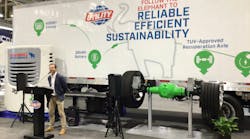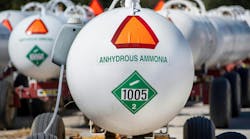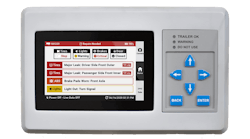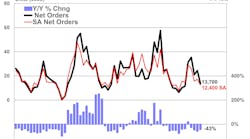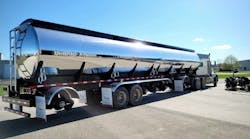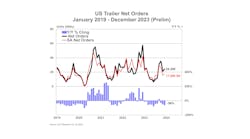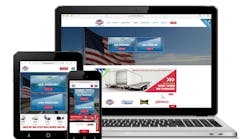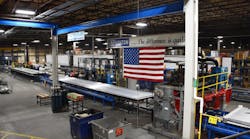As the vendors used to shout at the ballpark: "You can't tell the players without a scorecard." And, in the case of the Trump administration’s various trade negotiations and tariff plans (and associated exclusions, exemptions, and exceptions), keeping score is exceedingly more complicated than for any baseball game. Among the recent highlights, however, are the possible introduction of steel wheels into the unfair trade practices dispute with China, and President Trump’s call for heavy tariffs on imported cars, based on national security concerns. And, as with the introduction of proposed tariffs on steel and aluminum imports, many U.S. manufacturers are pushing back.
The matter of steel wheels arose from the request of a domestic manufacturer, Ohio-based Americana Development Inc., which employs more than 400 people at facilities in three states. In comments submitted to the U.S. Trade Representative and in a Section 301 hearing May 17, COO Jeffrey Pizzola argued that the company is already facing 41% higher material costs since the initial tariffs announcement, even though it uses domestic steel. The resulting higher price for its finished products gives a substantial advantage to Chinese competitors in the specialty wheel market, who are not subject to the same import duties on materials. Pizzola called the inclusion of finished products in the tariffs plan “a win-win.”
“Adding wheels to the list is a major step towards leveling the playing field for our U.S. wheel manufacturing operations,” Pizzola testified. “If the tariffs are used to protect raw material manufacturing jobs and not used to protect the jobs of people who use such raw materials, great long-term harm will result. More people are employed in steel-using businesses than in steel-making businesses. If you drive all of us out of business, then there will be no market for the output from the steel mills in the end.”
But other industry interests, including wheel makers and trade groups such as the National Association of Trailer Manufacturers, the Recreational Vehicle Industry Association, and the National Marine Manufacturers Association, weighed in against the request, arguing that a tariff would artificially increase prices to American manufactures and consumers while doing little to meet the Section 301 objectives.
The NATM Board of Directors quickly responded to oppose the request on behalf of NATM members and the light- and medium-duty trailer industry.
“Wheels are not a technology that confers a competitive advantage on their country of manufacture, and are almost certainly not a focus of Chinese industrial policy,” NATM notes in its filing.
The NATM rebuttal highlighted the small business nature of its membership, profiling the specific history and current levels of employment for a half-dozen trailer builders—and the potential negative impact of rising costs due top tariffs.
“NATM estimates that the impact of new tariffs would require our member companies to scale back on hiring and economic investment in the United States. Although the industry has plans for continued expansion, sales declines would almost certainly undermine its future hiring, investment, and growth,” the filing reads. “Indeed, the weakened competitive position could open the door to foreign competitors and lead to further erosion of the American trailer manufacturing industry.”
The complete docket, including public comments, can be found on the federal rulemaking site, regulations.gov.
Meanwhile, the Trump administration this week began looking into new levies on auto imports— including SUVs, vans and light trucks, and automotive parts—raising the hackles of manufacturers foreign and domestic, and of many members of Congress.
And while the Motor & Equipment Manufacturers Association supports the Trump administration’s agenda “to assure free, fair, and reciprocal trade” and agrees that national security depends on the economic security of the country, the group said it is “disappointed” about the tariffs, as they would adversely impact the success and growth of American manufacturing businesses.
“Motor vehicle parts manufacturers directly employ more than 871,000 Americans—up 19 percent in the last five years. This growth in jobs has been possible because motor vehicle parts suppliers operate in an integrated, complex global supply chain,” MEMA said in a statement. “Access to worldwide markets is critical for the motor vehicle parts industry to remain competitive. Imposing 232 tariffs on motor vehicle parts and motor vehicles will put American jobs—and national security—at risk.”
And consumers need competitively priced aftermarket parts to repair and maintain their vehicles, MEMA notes.
“Tariffs on imported parts will lead to increased repair costs, forcing U.S. consumers to potentially forgo necessary repairs and routine maintenance,” the association says. “Foregoing maintenance undermines the fundamental operating safety and efficiency of consumers’ vehicles.”
